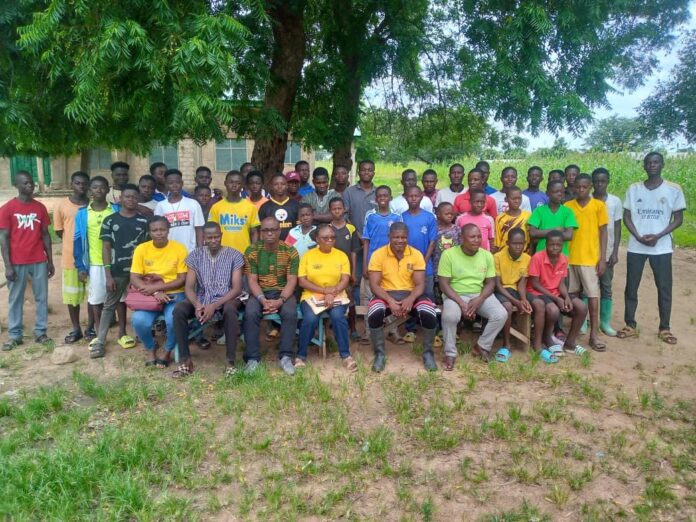Recent indicators of child marriage have left the Department of Children in the Upper East Region and other Stakeholders deeply worried.
According to the Multiple Indicator Cluster Survey, 2017-2018, child marriage prevalence in the Upper East Region is as high as 28.7%. This means that about 1 in 3 girls are married before reaching 18 years old. With a national average for child marriage before 18 being 19%, the Upper East Region has, therefore, surpassed the national average.
Though the 28.7% is an improvement from the 2014 figure of 39.2%, it remains a matter of concern that out of 3 girls in the region, 1 is most likely to get married before celebrating her 18th birthday.
Given the poverty levels in the region, child marriage is identified as a major contributor to worsening poverty levels since the girls have no decent source of livelihood and are compelled again to start a family despite the worrying poverty levels.
In a Press Release marking National Children’s Day, the Department of Children emphasized the need to have traditional and religious leaders continue to contribute to ensuring that harmful practices including child marriage become a thing of the past.
Aside from child marriage, which is inhibiting the progress of children, particularly, girls, child labour and other forms of child abuse continue to affect the lives of too many children negatively.
The Department of Children in the release signed by its Regional Director, Georgina Aberese-Ako, is therefore calling for concerted efforts to promote education, protect children’s rights, and create safe communities.
As part of efforts to improve the welfare of children, the Department is engaging parents and stakeholders at the community level to sensitize them on the need to improve the care for children and to jointly explore ways to further bring down the incidence of child marriage.
The essence of the engagement is to get community members, chiefs, and religious leaders to play their respective roles in changing the statistics as she noted that their contributions have led to a reduction in the incidence of pregnancy, abuse, and other harmful practices among children.
“Our traditional and religious leaders have always been custodians of our values, customs, and spiritual guidance. Today, we call upon them to use this revered position to champion the rights of children. By fostering a culture that respects and promotes child rights, these leaders can help us address critical issues such as child marriage, teenage pregnancy, child labor, school dropout, and the protection of children from violence and exploitation,” she stated.
“We have seen how the endorsement of child rights by traditional leaders has led to declines in harmful practices such as child marriage in several communities. Religious leaders have also used their platforms to promote education and the well-being of children. It is clear that when traditional and religious leaders stand up for children, the entire community listens and follows.”




